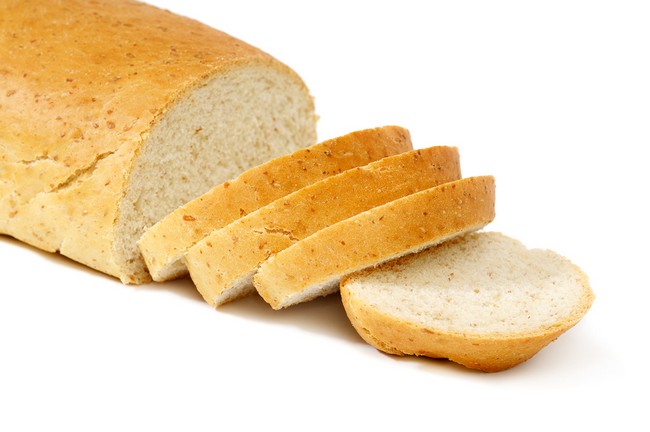- Make It Yourself Lavender Heart-Shaped Bath Bombs!
- 20 Things You Never Knew About “Down There”
- 12 Best Foods For Those Suffering From Arthritis Pain
- 12 Personal Hygiene Mistakes Almost Everyone Makes (Mom Never Told You About #4!)
- 15 Medicinal Plants And Herbs From The Cherokee People
- 12 Mind-Blowing Benefits Of Drinking Coconut Water During Pregnancy
- 12 Outstanding Winter Foods That Won’t Fatten You Up Like A Christmas Turkey
The 10 Secret Signs You Might Be Gluten Intolerant

Photo credit: bigstock
Going gluten free seems to be the latest thing, but it’s much more than just a fad. There are studies showing that more than 55 diseases have been associated with the protein that is found in wheat, barley, and rye. Many people tolerate gluten just fine, but how do you know if you are one of the 15 per cent of the population that just can’t stomach gluten? Here is a list of the top ten symptoms. If you have four or more, you might want to cut gluten out of your diet.
1. Stomach and other digestive problems
If you are experiencing bloating, excess gas, cramps, diarrhea, nausea, and/or constipation soon after eating foods that contain gluten, you should try to eliminate gluten from your meals and see if the problems go away.
SEE ALSO: How to Keep Children Safe Infographic
2. Extreme fatigue
Feeling like your brain is in a fog or feeling excessively tired after eating might mean you have gluten intolerance.
3. Inflammation
Frequent inflammation or swelling, combined with pain in your joints such as fingers, elbows, hips, and ankles is a common sign.
4. Moodiness
Many doctors believe that mood disorders such as anxiety, panic attacks, ADHD, and depression are often related to an intolerance of gluten. Read more about children with mental disorders.
5. Chronic Fatigue Syndrome or Fibromyalgia
When you have general pain, or extreme fatigue issues that your doctor simply cannot pin down the root cause, they often go with Chronic Fatigue Syndrome or Fibromyalgia. It could be, however, a gluten intolerance that is the origin of the problem. Instead of medication, try cutting out gluten and see if this resolves some of your issues.

Photo credit: bigstock
6. Keratosis Pilaris
This is a skin issue where you see very small raised bumps. They don’t itch, nor is there pain, however you might find large patches of them anywhere on the body. This is caused by the body’s inability to absorb vitamin A and other fatty acids.
The bumps themselves are harmless, however, the problems caused by long term exposure to gluten cause serious damage to the intestines because they are being deprived of these nutrients.
7. Migraine Headaches
A research project done in 2001 noted that subjects who ingested gluten had more episodes of intense headaches and migraine headaches than those whose diet was gluten free. Severe inflammation of the nervous system was shown in a subsequent MRI, probably the result of a bad reaction to gluten in the diet.
8. Neurological Problems
Feelings of vertigo, dizziness, or a poor sense of balance are all signals of a possible inflammation of the nervous system. Many people also report a tingling, numbness, or weakness in the extremities. These are all signs of gluten intolerance and the response of your immune system to the problem.
9. Autoimmune Issues
If you have been told you have one of the following conditions: lupus, multiple sclerosis, ulcerative colitis, scleroderma, or rheumatoid arthritis, you might find relief by cutting gluten out of your food.
10. Hormone Imbalance
Unexplained infertility problems, PMS, PCOS, or irregular periods are often related to an intolerance of gluten.
The best test for gluten intolerance isn’t from your doctor, because they actually don’t have one. Remove all sources of gluten from your diet for 2-3 weeks and see if your symptoms improve, then reintroduce gluten. If your symptoms return, or worsen, gluten is the most likely culprit.
Sources:

































Chris Blanco
May 16, 2014 at 3:22 pm
Thank God for articles like this that raise awareness of this problem. All of my life I have had digestive issues, stomach pain, excessive gas, diarrhea etc. Once I was in my teens I started getting migraines. In my 30’s I started getting joint pain, swelling, and numbness in my extremities. My fiancee suggested gluten as a culprit. I told her it was a fad, but decided what could it hurt.
I am proud to say that after a year on a GF diet that I have NONE of the above symptoms. Over the past year I have occasionally reintroduced, intentionally and inadvertently, gluten back into my diet and within a day the symptoms come back. I have learned what to avoid and what to eat, and I try to avoid cross-contaminated foods which is the big challenge. Good luck to anyone else who tries this. Its hard, but it can be done and the difference it can make in your life is extraordinary.
KIM FANGUE
May 27, 2014 at 8:42 pm
Have health issues,overweight ? I did also but, not anymore ! Ask me how ?